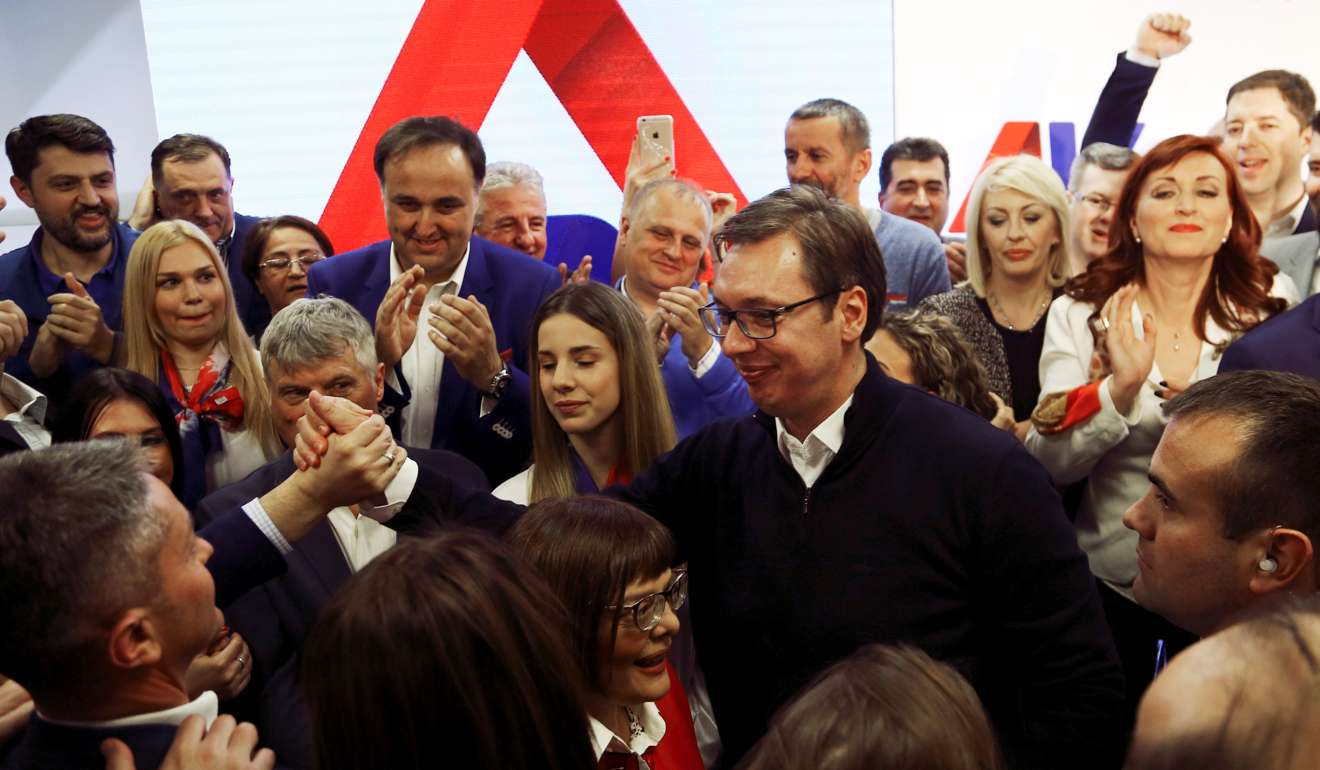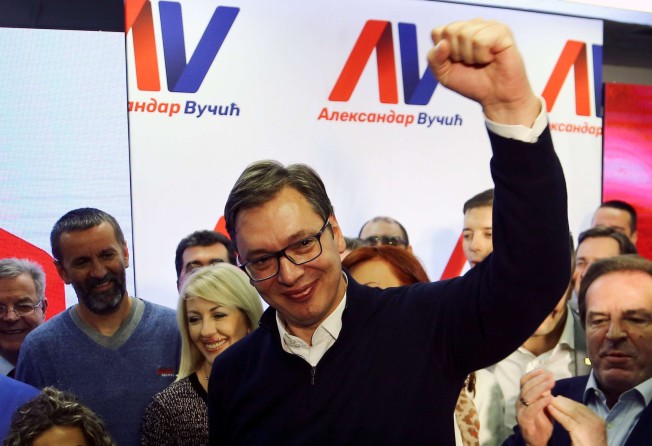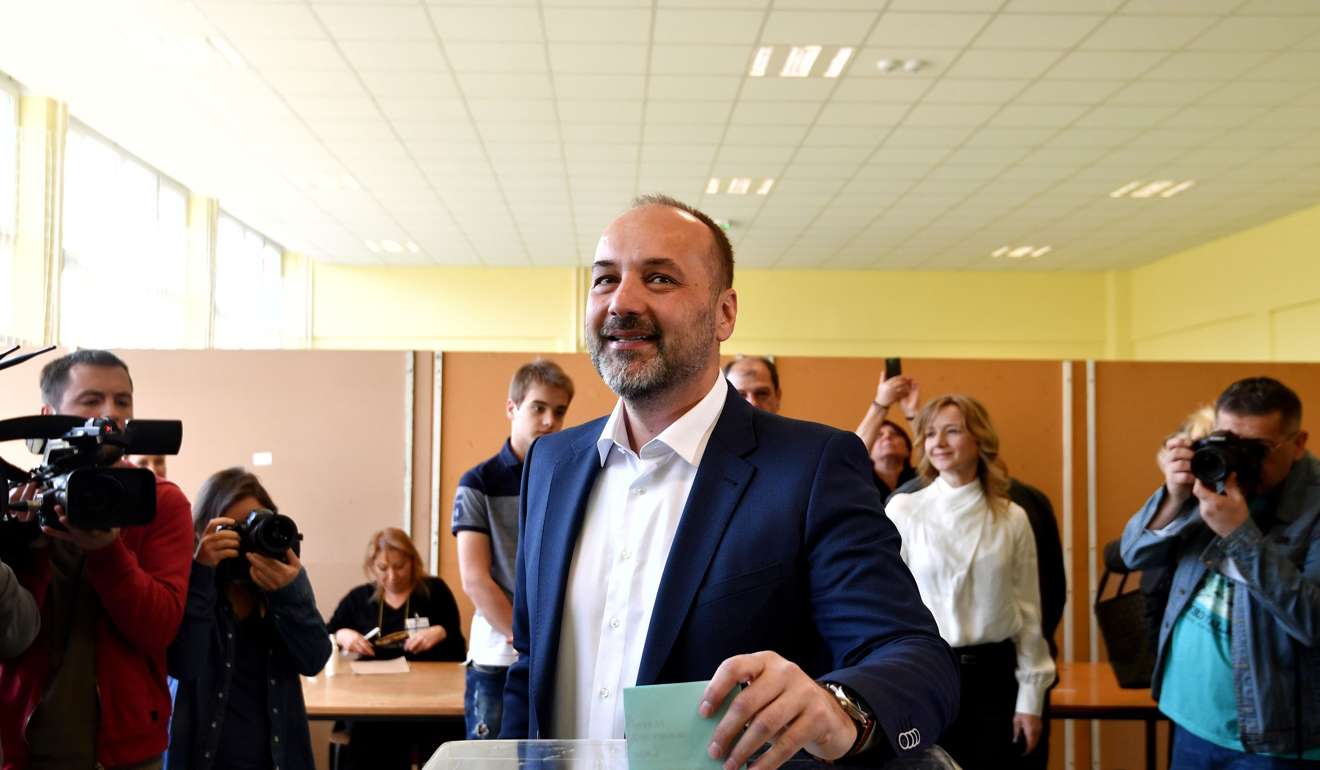
Putin’s ally in Serbia claims a landslide victory in presidential vote
Aleskandar Vucic vowed in his victory speech to maintain good ties with China

Serbia’s prime minister claimed a landslide victory in Sunday’s presidential election, opening the way for him to strengthen his grip on power and give Russia a chance to deepen its influence in the Balkans.

Speaking to supporters at his right-wing party’s headquarters, Vucic said, “My victory is crystal clear. This is a very important day for us, showing which way Serbia should be heading.
“A huge majority of people in Serbia support continuation of the European path for Serbia, along with preserving our traditionally good ties with Russia and China,” Vucic said, while his backers chanted “Victory, victory!”
Vucic, who served as the late Slobodan Milosevic’s information minister in the 1990s, will now shift from head of government to the more ceremonial presidential role, where he can nevertheless continue to hold sway as the head of the ruling Serbian Progressive Party. While he advocates EU membership, he’s pushing for stronger links with Russia as officials in the US and Europe accuse the Kremlin of promoting anti-establishment political forces and meddling in elections. Opposition leaders complain the tall, boyish-looking 47-year-old has suppressed their voices and marginalised media that doesn’t portray him positively.
“The first-round round victory gives Vucic a huge impetus for a shift toward a more authoritarian style,” said Bosko Jaksic, an independent foreign policy analyst at the New Policy Center in Belgrade. “Vucic can perceive this triumph as a referendum on his rule, that he can have a free hand to pursue his policies in foreign and domestic affairs.”

The result gives Vucic the biggest victory since Milosevic won 65 per cent in 1990, just before the bloody breakup of Yugoslavia. Echoes of that conflict, the deadliest in Europe since World War II, crept into the campaign, with Vucic holding his biggest rally on the start of the Nato-led bombing that drove Milosevic’s forces from Kosovo in 2000.
He has also tried to deepen ties with Russia, Serbia’s biggest ally in condemning the air campaign and rejecting its loss of Kosovo, which declared independence in 2008. In his last official state visit before the vote, Vucic traveled to Moscow to discuss the delivery of MiG fighter jets and armoured vehicles with Putin, who Serbia welcomed with its first full military parade since Communist times in 2014. Vucic also reiterated his opposition to the EU’s sanctions against Russia, which shares Orthodox religious and cultural ties with the Serbs.
Still, since Milosevic’s ouster in 2000, the biggest former Yugoslav republic has inched toward EU membership, extraditing dozens of war crimes suspects for prosecution, fighting corruption, and changing laws. Vucic touts a friendship with German Chancellor Angela Merkel and has pledged to ready Serbia for accession by 2020. However, Serbia hasn’t normalised ties with Kosovo, overhauled the courts or fully retooled its economy. Living standards for the 7 million Serbs are just above a third of the EU average.
It’s the third election victory in a row for Vucic and his party, which opposition leaders say has used its ruling position unfairly to its advantage. Before Sunday’s vote, he’d called and won two snap elections since 2014 that kept rival parties on the back foot. Vucic has rejected the opposition’s complaints as an attempt to sow instability.
Additional reporting by Associated Press